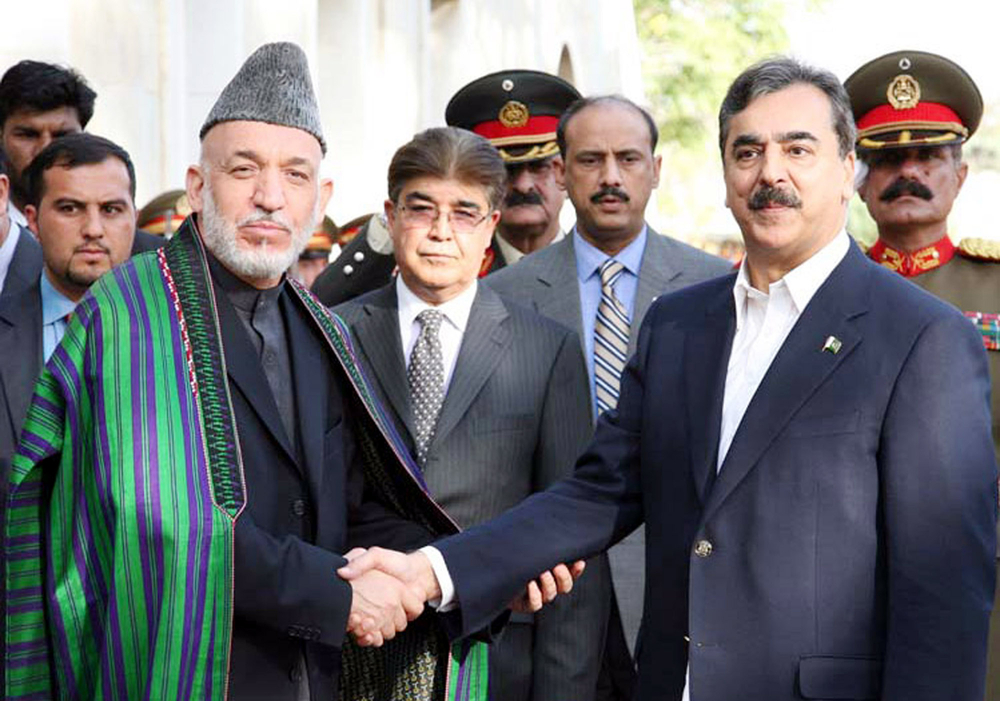
KABUL, Afghanistan (AP) — Trucks and donkeys loaded with ballot boxes made their way to counting centers on Sunday as Afghans and the international community sighed with relief that national elections were held without major violence despite a Taliban threat.
Millions of Afghans crowded into mosques and schools to vote Saturday for a new president and provincial councils. President Hamid Karzai is on his way out, constitutionally barred from a third team after leading the country since after the Taliban were ousted in 2001.
The international community praised the vote and high turnout despite complaints about a shortage of ballots and reports of fraud.
The U.N. Security Council issued a statement saying it applauded the Afghan-led preparations for the vote and commended the performance of the Afghan security forces who fanned out to protect polling stations. Scattered violence including bombings, rocket attacks and gunbattles were reported to have killed at least 20 people on Saturday, but no major attacks occurred.
Electoral officials urged patience, saying complaints were still being logged and ballots tallied. They said partial results could come as early as Sunday, but it is likely to be at least a week before a complete picture emerges.
Thijs Berman, the head of the European Union’s election assessment team in Kabul, said it was too soon to draw firm conclusions, but he hailed the courage of Afghan voters.
“This in itself is a victory over violence and a victory over all those who wanted to deter democracy by threats and violence,” he said in a telephone interview.
Experts, meanwhile, looked for signs of deal-making among the eight candidates as it was widely expected that none would get the majority needed to win outright and avoid a runoff vote.
“We need and seek a political compromise because many candidates represent the interest of specific ethnic groups,” said Haroon Mir, an Afghan political analyst. “It’s for the good of the Afghan people and the country that if we could reach a political compromise in the runoff between the top two contenders that will be a better outcome.”
The three front-runners in a field of eight candidates expressed confidence that they could win, or at least advance to a second round, but all promised to respect the findings of the Independent Election Commission assuming they were “credible.”
Zalmai Rassoul, a former foreign minister who critics said was Karzai’s choice, denied he had any help from the government.
“If the election goes to the second round we are ready to go to the second round, and if we go to the second round I am confident that we will win,” he told reporters on Sunday.
Fears of fraud such as ballot box stuffing and government interference were high after the last presidential elections in 2009 were marred by widespread vote-rigging. This time, most of the candidates had deployed thousands of observers to monitor polling centers.
“We have received complaints from our campaigns throughout the country and we have registered our complaints,” one leading contender Abdullah Abdullah said late Saturday at a press conference. “We have processed those complaints and referred them to the relevant commission, which is the independent Election Complains Commission, and hopefully those complaints will be dealt with.”
Abdullah was Karzai’s main rival in 2009, but he dropped out before a runoff vote because he said he did not believe it would be fair.
Another front-runner, Ashraf Ghani Ahmadzai, said his campaign had received complaints ranging from ballot box stuffing to preventing people from casting their own ballots. But he refused to point a finger at any rivals and said he would wait for the findings of electoral officials.
With combat forces from the U.S.-led coalition winding down a 13-year presence and the mercurial Karzai stepping aside, the country’s new leader will find an altered landscape as he replaces the only president Afghans have known since the Taliban were ousted in the wake of the Sept. 11 attacks.
But for some progress, particularly with women’s rights, the country’s situation is inauspicious, especially with its poor security and battered economy.
A security agreement with the United States would allow thousands of foreign troops to remain in the country to continue training security forces after 2014. Karzai – perhaps trying to shake off his image as a creation of the Americans – has refused to sign it, but all eight presidential candidates said they will.
In congratulating Afghanistan on the election, U.S. President Barack Obama said it represented “another important milestone in Afghans taking full responsibility for their country as the United States and our partners draw down our forces.”
“These elections are critical to securing Afghanistan’s democratic future, as well as continued international support, and we look to the Afghan electoral bodies to carry out their duties in the coming weeks,” Obama said in a statement.
The runup to the election was troubling: the Islamic radicals of the Taliban, reviled by many but still popular in some areas, view the entire enterprise as the work of outsiders and infidels, and they vowed to disrupt it by targeting polling centers and election workers.
To drive home the threat, insurgents in recent weeks stepped up shootings and bombings in the heart of Kabul to show they are capable of striking even in highly secured areas. A restaurant popular with foreigners and one of the capital’s main hotels were hit, killing many. Suicide bombers struck relentlessly.
On Friday, veteran Associated Press photographer Anja Niedringhaus was killed and AP reporter Kathy Gannon was wounded when a local policeman opened fire as they sat in their car on the outskirts of Khost, in eastern Afghanistan. The two were at a security forces base, waiting to move in a convoy of election workers delivering ballots – apparent victims of an “insider attack” in which the very people tasked with protection turn out to be insurgents.